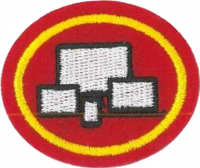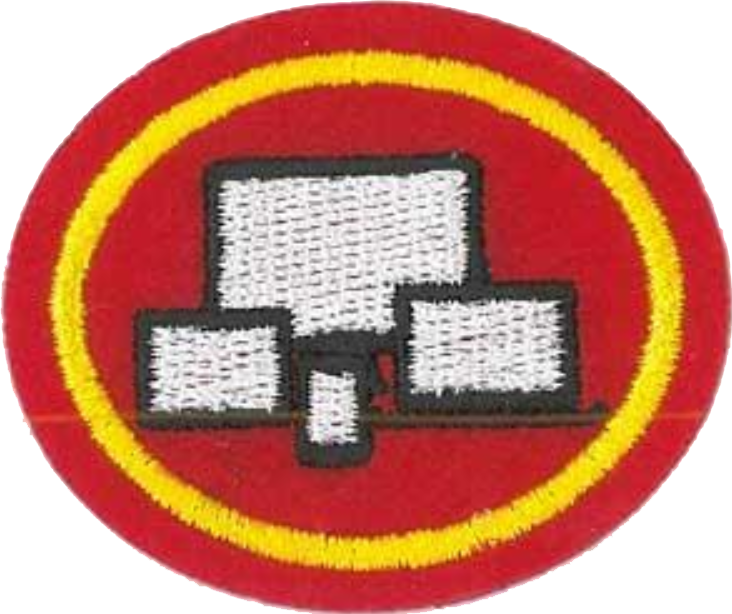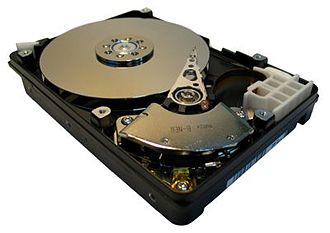Difference between revisions of "AY Honors/Computers/Answer Key/es"
From Pathfinder Wiki
(Created page with "</noinclude> <!-- 5. ¿Cuáles son las ventajas de incrementar la velocidad del procesador, la capacidad del disco duro y la memoria (RAM) en la computadora? -->") |
(Created page with "{{clear}}") |
||
| Line 99: | Line 99: | ||
{{clear}} | {{clear}} | ||
| − | + | {{clear}} | |
| − | |||
| − | |||
| − | + | {{clear}} | |
| − | |||
| − | |||
| − | |||
| − | + | {{clear}} | |
| − | |||
| − | |||
| − | |||
| − | + | {{clear}} | |
| − | |||
| − | |||
| − | + | {{clear}} | |
| − | |||
| − | |||
| − | + | {{clear}} | |
| − | |||
| − | |||
| − | + | {{clear}} | |
| − | |||
| − | |||
| − | |||
| − | |||
| − | |||
| − | |||
| − | + | {{clear}} | |
| − | |||
| − | |||
<noinclude></noinclude> | <noinclude></noinclude> | ||
| Line 183: | Line 161: | ||
{{CloseReq}} <!-- 7 --> | {{CloseReq}} <!-- 7 --> | ||
{{ansreq|page={{#titleparts:{{PAGENAME}}|2|1}}|num=8}} | {{ansreq|page={{#titleparts:{{PAGENAME}}|2|1}}|num=8}} | ||
| − | <noinclude> | + | <noinclude></noinclude> |
| − | </noinclude> | + | <!-- 8. Escribir un ensayo de 250 palabras o tener una charla de tres minutos acerca de la historia de las computadoras. Incluir prominentes eventos y personalidades que son significativas para el desarrollo de las computadoras tanto en programas y componentes tipo hardware y software. Este reporte deberá enfocarse en el desarrollo de las computadoras personales, no sobre internet u otros accesorios relacionados con las computadoras. --> |
| − | <!-- 8. | ||
| − | |||
| − | |||
| − | + | {{clear}} | |
| − | |||
| − | |||
| − | + | <noinclude></noinclude> | |
| − | <noinclude | ||
| − | |||
{{CloseReq}} <!-- 8 --> | {{CloseReq}} <!-- 8 --> | ||
{{ansreq|page={{#titleparts:{{PAGENAME}}|2|1}}|num=9}} | {{ansreq|page={{#titleparts:{{PAGENAME}}|2|1}}|num=9}} | ||
| − | <noinclude> | + | <noinclude></noinclude> |
| − | </noinclude> | + | <!-- 9. Medir el tiempo por una semana en la que usted utiliza la computadora. Anotar cuánto tiempo utiliza en las tareas, jugando, en internet, etc. Al final de la semana, evaluar con su consejero, familia o líder de grupo cómo su tiempo en la computadora se relaciona con la instrucción bíblica sobre la mayordomía del tiempo y los recursos (Romanos 14:12; Salmo 31:15; Eclesiastés 31:1-8; Efesios 5:15 y 16). --> |
| − | <!-- 9. | ||
| − | |||
| − | |||
| − | + | {{clear}} | |
| − | |||
| − | |||
| − | + | {{clear}} | |
| − | |||
| − | |||
| − | + | {{clear}} | |
| − | |||
| − | |||
| − | + | {{clear}} | |
| − | |||
| − | |||
| − | + | {{clear}} | |
| − | |||
| − | |||
| − | + | <noinclude></noinclude> | |
| − | <noinclude | ||
| − | |||
{{CloseReq}} <!-- 9 --> | {{CloseReq}} <!-- 9 --> | ||
{{ansreq|page={{#titleparts:{{PAGENAME}}|2|1}}|num=10}} | {{ansreq|page={{#titleparts:{{PAGENAME}}|2|1}}|num=10}} | ||
| − | <noinclude> | + | <noinclude></noinclude> |
| − | </noinclude> | + | <!-- 10. Dialogar con un usuario de larga duración en computadoras acerca de las ventajas/desventajas de una Mac y una PC. Algunas de las preguntas pueden incluir: --> |
| − | <!-- 10. | ||
| − | |||
| − | |||
| − | + | <noinclude></noinclude> | |
| − | <noinclude | ||
| − | |||
{{CloseReq}} <!-- 10 --> | {{CloseReq}} <!-- 10 --> | ||
| − | <noinclude> | + | <noinclude></noinclude> |
| − | </noinclude> | + | ==Referencias== |
| − | == | + | [[Category:Adventist Youth Honors Answer Book/es]] |
| − | + | <noinclude></noinclude> | |
| − | [[Category:Adventist Youth Honors Answer Book/ | ||
| − | <noinclude | ||
| − | |||
{{CloseHonorPage}} | {{CloseHonorPage}} | ||
Revision as of 13:58, 17 May 2021
1
Describir la función de los siguientes componentes y señalarlos en una computadora personal:
1a
CPU
1b
Memoria (RAM)
1c
Placa base
1d
Disco duro
1e
Unidad externa
1f
Unidad interna
1g
USB
1h
Lector óptico
1i
Unidades de entrada
1j
Monitor
1k
Teclado
1l
Impresora
1m
Ratón
1n
Módem
1o
Cámara digital
1p
Escáner
2
Describir el adecuado manejo y las técnicas de almacenamiento de discos, CDs, CDRs, DVDs, unidades USB y otros dispositivos de medios ópticos equivalentes.
3
Explicar la diferencia entre solo lectura, copiar solo una vez, grabar-regrabar. ¿Cuáles son algunos ejemplos de cada uno?
4
Determinar lo siguiente en el sistema de una computadora:
- a. Velocidad del procesador
- b. Capacidad de almacenamiento en el disco duro
- c. Capacidad de memoria (RAM)
5
¿Cuáles son las ventajas de incrementar la velocidad del procesador, la capacidad del disco duro y la memoria (RAM) en la computadora?
6
Hacer una lista de dos tipos de impresoras y explicar los usos y ventajas de cada uno.
Impresora láser
Adventist Youth Honors Answer Book/Computers/Laser printer/es
Impresora de inyección
Adventist Youth Honors Answer Book/Computers/Ink jet printer/es
7
Explicar cómo cada uno de los siguientes elementos ayuda a proteger el sistema de la computadora. ¿Por qué la seguridad de la computadora es tan importante?
7a
Hacer una copia de respaldo de sus archivos personales
7b
Hacer una copia de la imagen del sistema
7c
Protección contra las variaciones de electricidad
7d
Un equipo hardware/software de seguridad del internet
8
Escribir un ensayo de 250 palabras o tener una charla de tres minutos acerca de la historia de las computadoras. Incluir prominentes eventos y personalidades que son significativas para el desarrollo de las computadoras tanto en programas y componentes tipo hardware y software. Este reporte deberá enfocarse en el desarrollo de las computadoras personales, no sobre internet u otros accesorios relacionados con las computadoras.
9
Medir el tiempo por una semana en la que usted utiliza la computadora. Anotar cuánto tiempo utiliza en las tareas, jugando, en internet, etc. Al final de la semana, evaluar con su consejero, familia o líder de grupo cómo su tiempo en la computadora se relaciona con la instrucción bíblica sobre la mayordomía del tiempo y los recursos (Romanos 14:12; Salmo 31:15; Eclesiastés 31:1-8; Efesios 5:15 y 16).
10
Dialogar con un usuario de larga duración en computadoras acerca de las ventajas/desventajas de una Mac y una PC. Algunas de las preguntas pueden incluir:
- a. ¿Qué sistema operativo usan ambas? ¿Cuáles son algunas ventajas de esos sistemas operativos?
- b. ¿Qué problemas de compatibilidad tienen esas dos tipos de computadoras en relación a compartir los datos e instalación de programas?
- c. ¿Qué clase de industrias/carreras tienden a usar cada clase de sistema de computadoras?




